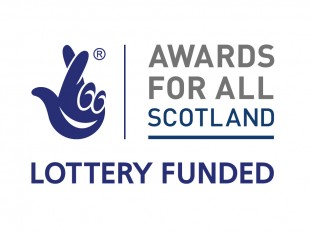One of the most notable things about the LAIC and LGBTQ collections is the way in which they capture everyday life of the archives contributors. Though arguably this could be said of all archives, many theorists of Queer and Feminist archiving have pointed to the way in which these collections are characterised by the ephemeral and the personal. Ann Cvetcovic, and others, have articulated this tendency in LGBTQ collections:
In addition to accumulating these textual materials, gay and lesbian archives are likely to have disproportionately large collections of ephemera because of their concern with sexuality and leisure culture as well as with the legacies of grassroots political activism… In insisting on the value of apparently marginal or ephemeral materials, the collectors of gay and lesbian archives propose that affects – associated with nostalgia, personal memory, fantasy, and trauma – make a document significant.
The growth of the Lesbian, Queer and Feminist Archives coalesced directly around not just activist activities, but around all aspects of Lesbian, Queer and Feminist life. These archives, and ours is certainly no exception, are full of invitations to parties, discos, bookgroups, consciousness raising session, sports groups. They contain music, films, television and art. This ‘ephemera’ is central to the spirit of LGBTQ collections like ours which resists institutional and hierarchical forms of collecting by insisting that the personal is political.
Dyke TV
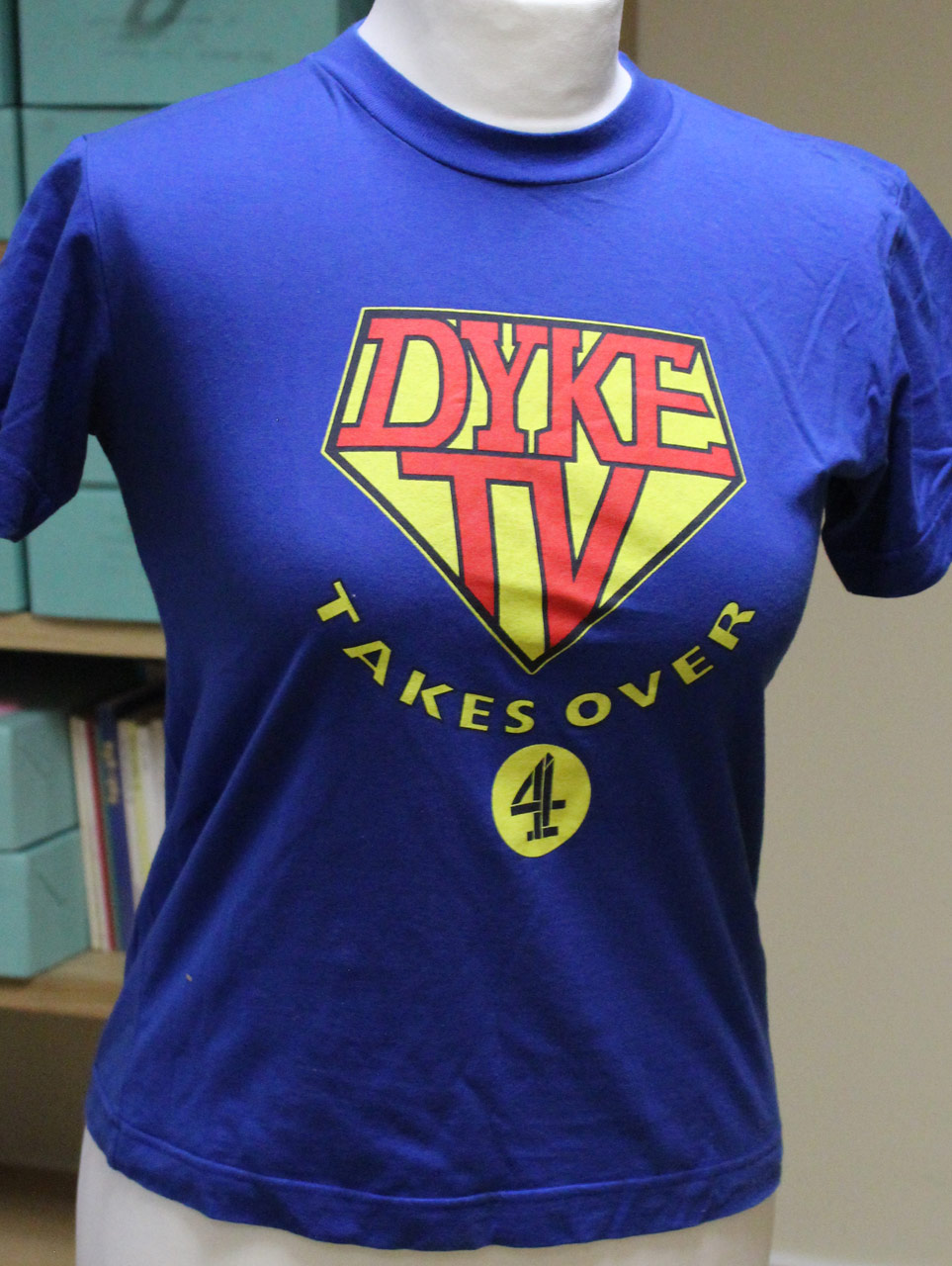
Dyke TV (UK) was a season of television shows that aired on Channel 4 in the 1990s. Each episode looked at different issues and campaigns affecting lesbian women such as Section 28 and Lesbian parenting. It caused controversy in the mainstream tabloid press, with the Daily Mail labelling the season “15 solid hours of sex pervert TV”. The Lesbian Archive’s film and video collections contains home recordings of Dyke TV from its original broadcast.
Rubyfruit T-shirt
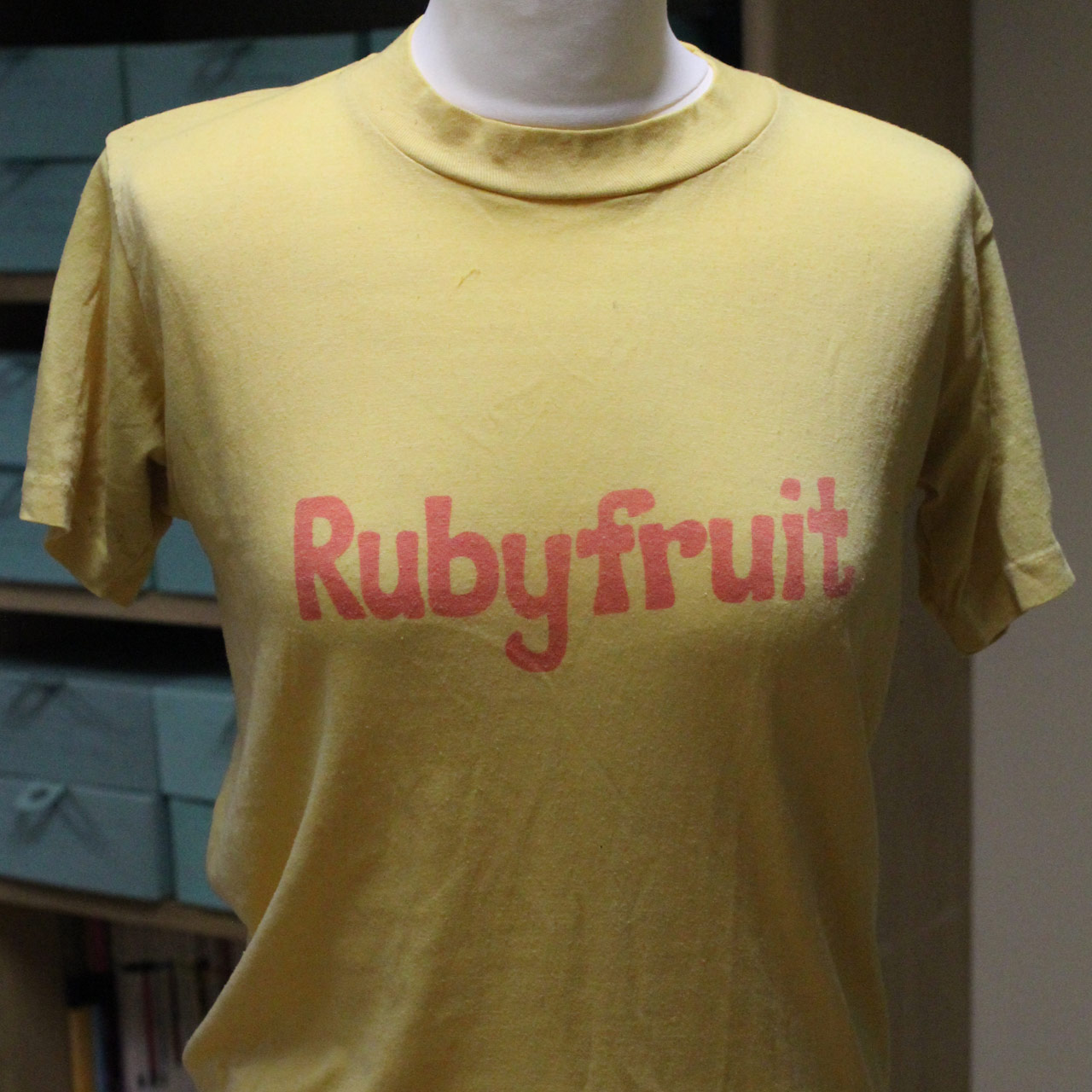
This T-shirt is a tribute to the Lesbian coming of age novel, Rubyfruit Jungle by the influential writer Rita Mae Brown. First published in 1973, the book was a ground breaking exploration of young lesbian sexuality and Rubyfruit became a euphemistic term for lesbian sexuality. Rita Mae Brown herself was a member of radical and influential feminist, lesbian and gay rights groups in the USA like Redstockings, Lavender Menace and the Gay Liberation Front.
DIVA Magazine
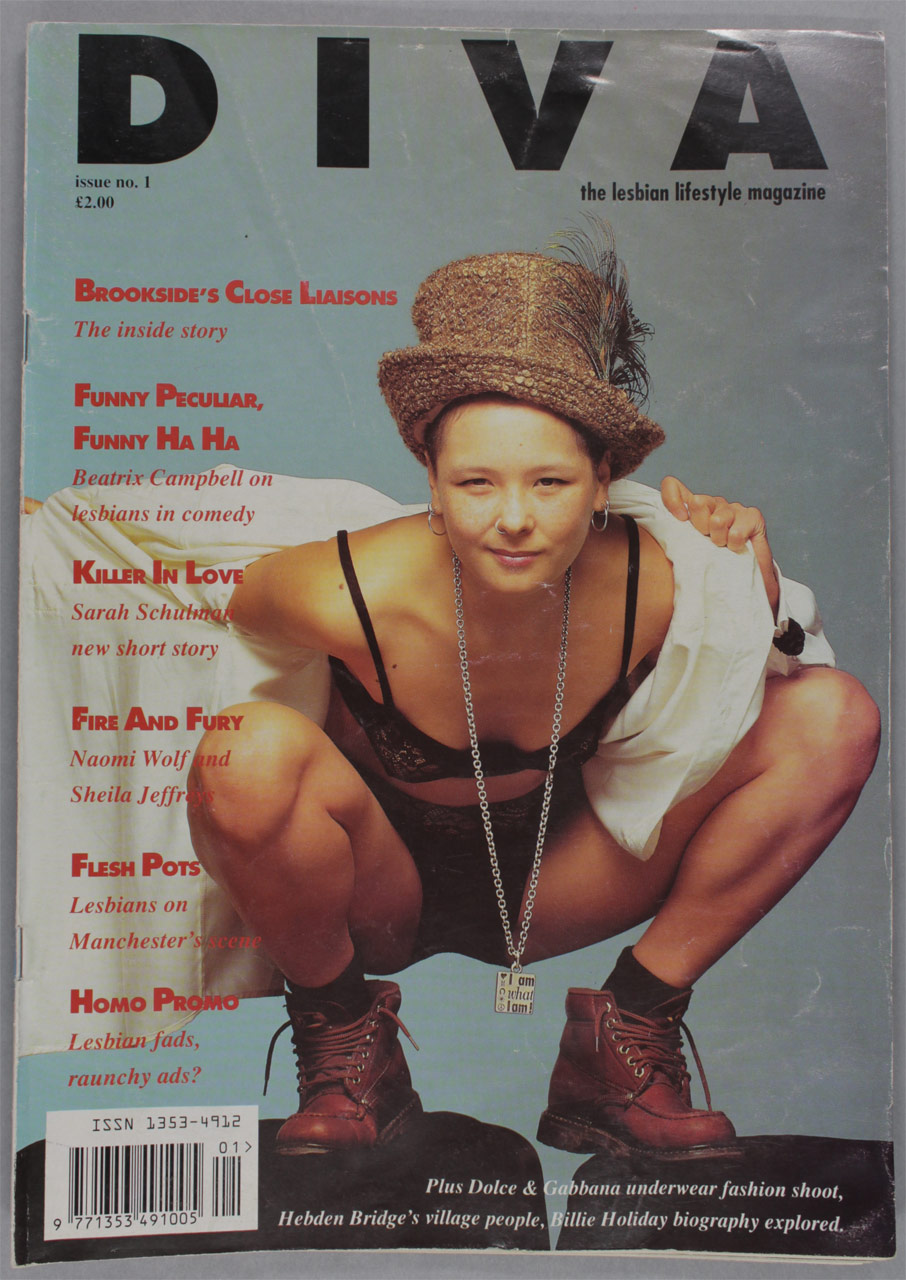
DIVA Magazine is an influential Lesbian, Bi and Queer woman’s publication produced in the UK. Started in 1994, the magazine is the only glossy monthly magazine widely available. It is famous for its interviews with mainstream LGBTQ women celebrities, and its lifestyle and cultural commentaries.
Sappho Discos
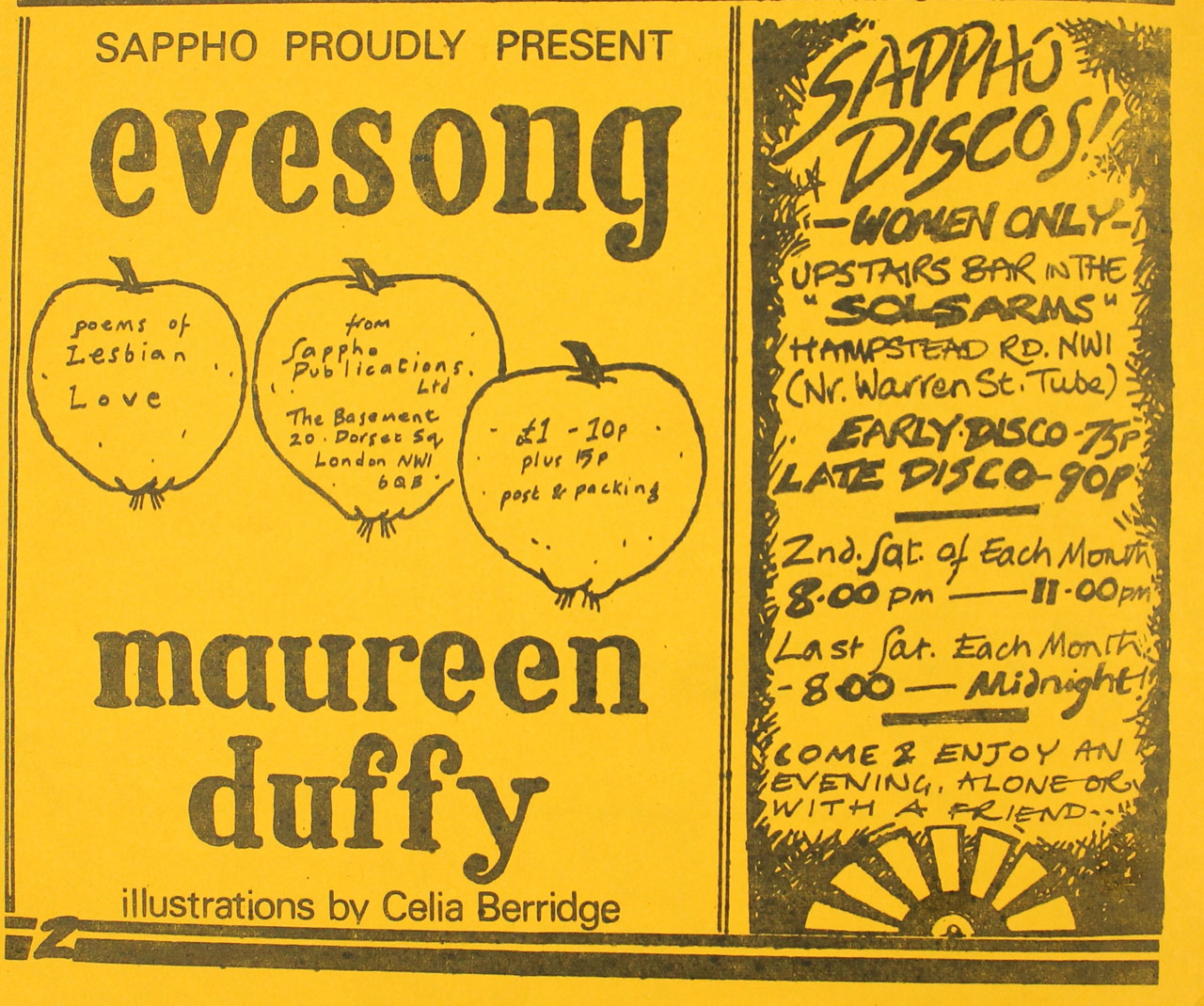
Sappho magazine (See Feminism and Lesbian Politics) was a social as well as political hub for Lesbians in the 1970s and early 1980s. Throughout the magazine’s tenure, it’s organisers and supporters organised a range of different events. It’s regular disco’s and socials are a feature of the magazine, and encouraged the readership to socialise with one another at a time when spaces for lesbian women to regularly interact were limited in number. As well as these socials, Sappho also organised a range of events and performance evenings with prominent gay figures like Quentin Crisp and Maureen Duffy to feminist consciousness raising sessions and were regularly the subject of much correspondence in Sappho.
Holidays in Phartos [sic]
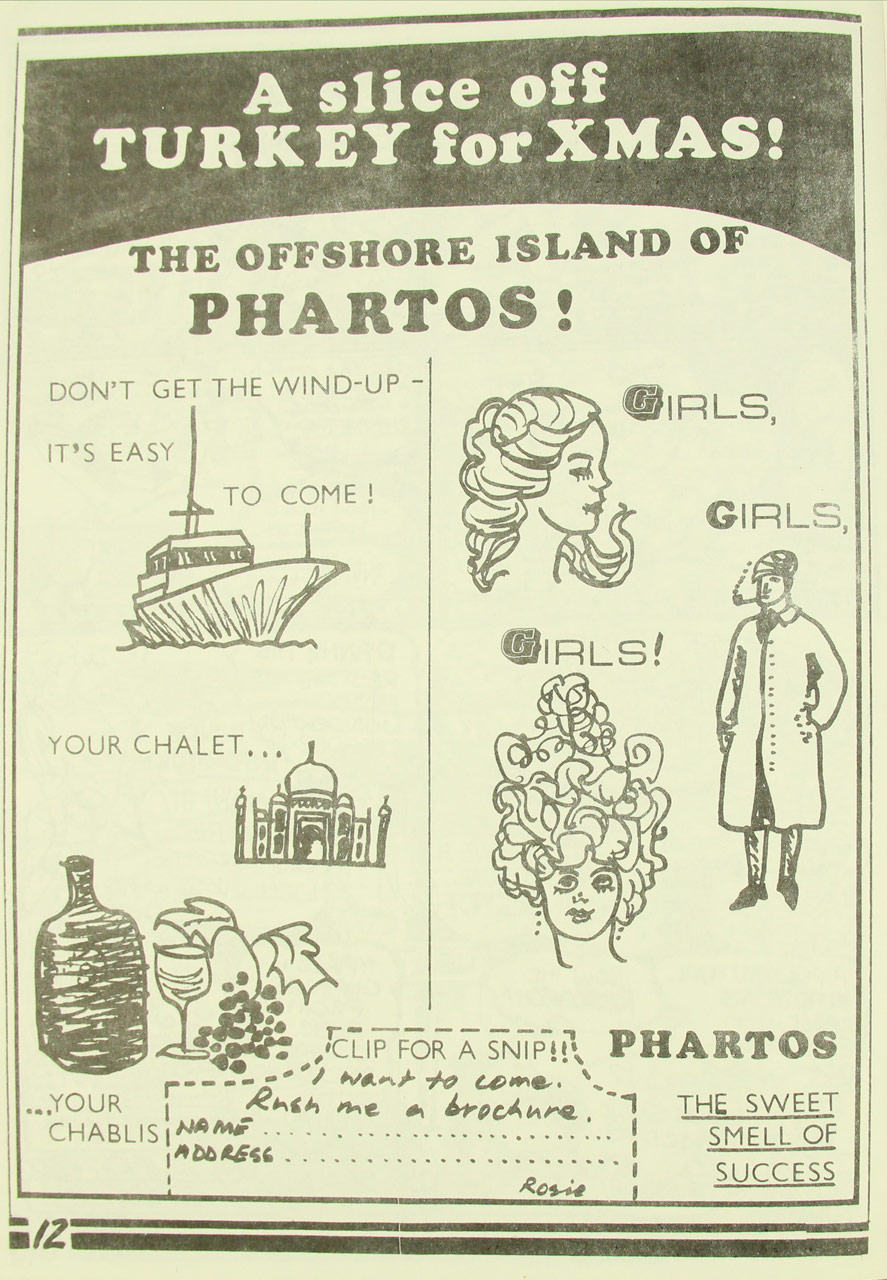
Holidays, and holiday advertisements, can be found in the LAIC collection. This is a jokey example from Sappho, encouraging readers to find out more about a cruise to a fictional Greek island of Phartos. In the early 1970s the first of the Gaia’s Guides had been produced encouraging a wave of literature and networks encouraging Lesbian and Gay people to travel and offering tips and information on safe and welcoming places for them to stay and socialise. It also led to a proliferation of trips and excursions organised by and for Lesbian women appearing in publications, as well as amongst groups and social spaces.
Hackney Lesbian Women’s Group Events Programme
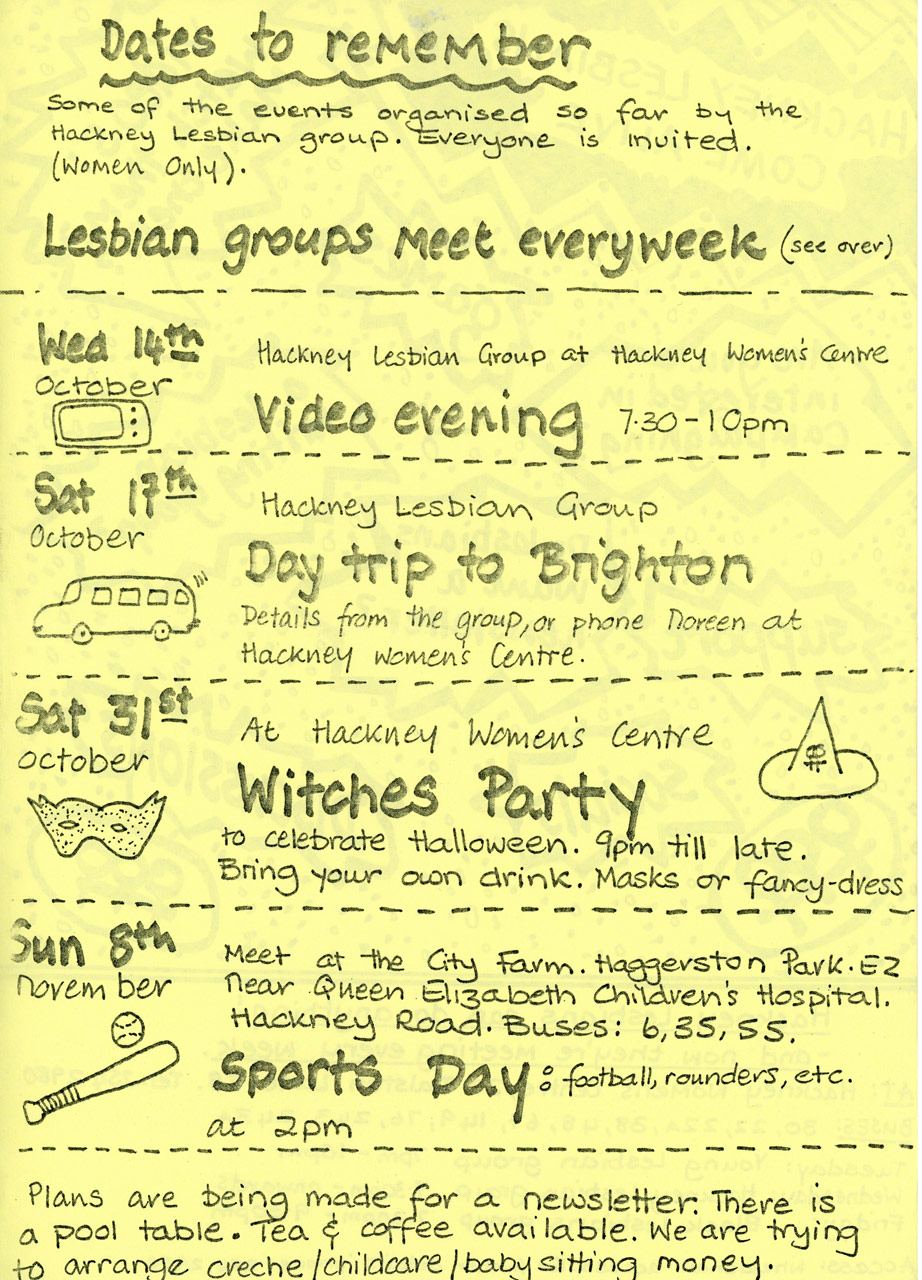
This events programme for Hackney Women’s Centre Lesbian Group is typical of some of the social events programmes and flyers which we have throughout the archive. It illustrates the wide range of social activities that these groups promoted amongst the women that used those spaces. Flyers like this are often interesting because they can often underline the intersectional approaches to organising that feminist and lesbian spaces often tried to institute around building access for wheelchair users, childcare facilities and language interpretation.
—
Return to the LGBTQ Collections Online Resource, or explore LGBTQ Life in Scotland
—


